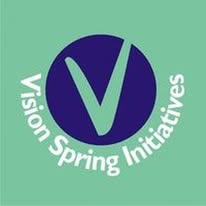Education is a cornerstone of personal and societal development, yet for many girls in Nigeria, it remains a fragile dream under siege. Insurgent activities and restrictive civic spaces compound the challenges they face, creating a landscape where pursuing education becomes an act of defiance. Insurgency since 2009 has disrupted educational system in the northeastern region of Nigeria with destructive effects on young girl education.

By Soneye Adetutu Eniola
Insurgency: A Direct Threat to Girls’ Education
The north-eastern region of Nigeria comprises six states namely Adamawa, Bauchi, Taraba, Gombe, Yobe and Borno State. The region has faced a devastating trend of insurgency, terrorism and brutal killings of innocent citizens perpetrated by Boko Haram. The sect promotes a version of Islam which declares Western education as haram. In other words, it forbids Muslims from taking part in any education, political or social activity associated with Western culture and civilization. The embargo includes but not limited to Western education, voting in elections, and wearing of shirts and trousers.
The terrorists continually kidnap schoolgirls, kill students and teachers, and execute Christian and Islamic clerics who oppose their retrogressive doctrine. Massive destruction of school buildings and the use of teenage female suicide bombers are further demonstrations of Boko Haram’s strong resentment against Western education.
The infamous abduction of 276 schoolgirls from Chibok in 2014 brought global attention to this crisis.
However, beyond high-profile cases, countless girls face daily threats to their safety while attempting to access education. Schools are not just targets for attacks; they are also used as recruitment grounds or bases for insurgent activities. These attacks instill fear in communities, leading to school closures or parents withdrawing their daughters to protect them from violence, abduction, or forced marriages.
A 2023 UNESCO report highlighted that Nigeria accounts for one of the world’s highest rates of out-of-school girls, with insecurity being a significant factor.
Civic Space Restrictions: Silencing Advocacy for Education
In addition to insurgency, restrictions on civic space exacerbate the challenges. Advocacy for girls’ education often comes under scrutiny, with activists, non-governmental organizations, and community leaders facing intimidation, harassment, or legal hurdles. In some regions, restrictions on freedom of speech and assembly hinder the efforts of grassroots movements to demand safer schools and increased funding for education.
These restrictions disproportionately affect women-led organizations, which are pivotal in championing girls’ education. By silencing their voices, civic space limitations indirectly stifle progress, leaving gaps in advocacy and support for vulnerable girls.
The Socioeconomic Ripples of Disrupted Education
Many survivors also report suffering mental and physical health problems because of the abuses they have suffered. Some described continuing to endure bleeding and other serious gynecological problems as a result of rape. Many of the students, as well as some of the teachers, described recurring nightmares, anxiety, being easily frightened, an inability to focus, and other signs commonly associated with trauma. Their traumatic experiences often have an impact on their ability to pursue their education and may also impede their ability to move on with their lives in other important ways.
The consequences of restricted education for girls extend far beyond the classroom. Limited access to education perpetuates cycles of poverty, early marriage, and gender inequality. Research shows that every additional year of schooling can significantly increase a girl’s future earnings and improve health outcomes for her and her children. Denying education to a generation of Nigerian girls not only undermines their personal potential but also hampers national development.
The Role of Policy and International Support
Addressing the dual threat of insurgency and civic space restrictions requires coordinated efforts at the local, national, and international levels. Key recommendations include:
- Increased Security for Schools: Expanding initiatives like the Safe Schools Initiative to protect schools from attacks and ensure continuity of education in conflict zones.
- Strengthening Civic Space: Safeguarding the rights of organizations and activists advocating for girls’ education through legal reforms and international pressure.
- Investing in Alternative Education: Supporting innovative models, such as digital learning platforms and community-based schooling, to reach girls in remote or insecure areas.
- Trauma Support and Counseling: Integrating mental health services into education systems to help girls recover from the psychological impact of conflict.
References:
https://unesdoc.unesco.org/ark:/48223/pf0000382577https://www.amnesty.org/en/latest/news/2023/04/nine-years-after-chibok-girls-abducted/
